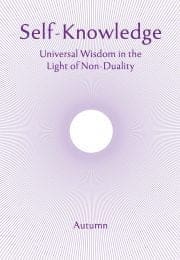How Can Self and Not-Self Be Connected?
The Thousand Teachings of Shankara, Prose Part, Section Two
In the Thousand Teachings of Shankara we find a dialogue between a student and a knower of Truth. The student has thought carefully about the non-dual teachings and come across points which seem to him contradictory or even incomprehensible, and so he approaches the teacher with due respect for help.
The Thousand Teachings is the one work which is not a commentary on something else and which almost all scholars agree is definitely by Shri Shankara, the great philosopher-sage of non-duality. The text is partly prose, partly verse. The prose part is in three sections, and this dialogue is the second prose section.
It presents a model of ideal student-teacher interaction. Yet it is also psychologically astute, and has appealing human touches. The student sincerely tries to understand, but occasionally a desire to demonstrate his own cleverness seems to come through. The teacher is evidently aware of the student’s efforts, and his foibles, and responds to both. Finding this balance of rigorous enquiry, without cavil, is an important aspect of the path.
The student begins in this way: Revered teacher, how can I find liberation? I experience suffering while awake, respite in deep sleep, and then suffering again. Is this condition my real nature? Or is it something fortuitous? If it is my own nature, there is no hope of liberation, because no-one can escape from their own nature. But if it is fortuitous then liberation may be possible by removing its cause. [from The Thousand Teachings, prose part, section two, verse 45]
So far, this question does not relate to the non-dual philosophy specifically. There is a generally accepted principle that the true nature of something can be distinguished from what might be called ‘fortuitous’ or ‘contingent’ qualities, as heat is the nature of fire, while smokiness is a contingent quality sometimes associated with fire. And although the student is asking the question of whether suffering is in his true nature or fortuitous, it is clear what he hopes and expects the answer to be. He is looking for reassurance, which the teacher gives him: ‘Listen my child, suffering is not your nature, it is fortuitous.’ [2:46]
The student next asks: What then is the cause of this condition, and how can it be ended? The answer is: The cause is ignorance and it is ended by knowledge. Your true nature is the Supreme Self, transcendent, immutable, immortal. But you think that you are the individual passing through life, doing actions, experiencing pleasure and suffering, and who will one day die. This is ignorance; when it is removed by true Self-knowledge, you will be liberated. [2:47-50]
To often remind ourselves of what is said here about the essential challenge will keep our efforts focussed and balanced.
Now the student comes to the particular points that he finds problematic. He says: I exist, that is certain. But I am not the supreme Self which is changeless and immortal. According to the philosophy, direct experience is one of the ways in which we acquire knowledge. I have direct experience of growth, decline, pleasure and pain, so I know that this is my nature.
The student continues: It is said in the non-dual teachings that ignorance of the true Self is caused by what is called the ‘superimposition’ of Self and not-self. Another example of superimposition is when someone sees mother-of-pearl and thinks it is silver, in which case the quality of silver, which is strong and valuable, is superimposed on mother-of-pearl, which is brittle and valueless.
But this cannot be the cause of the ignorance regarding our true Self, because one can only superimpose things which are already known. If one did not know about silver and mother-of-pearl, one would not superimpose them on each other. And if the Self is unknown, it cannot be superimposed on something else, or vice versa. [2: 51]
The student is making clear that he has thoroughly studied the teaching and found what he believes to be real weaknesses within it. What follows can appear quite obscure and hard to follow. The obscurity and difficulty are not in Reality, but in the student’s confusion—which is always the case! Let us see how the dialogue proceeds, and how the difficulties are resolved.
Subscribe or enrol for free guest access to read all of this article and Self-Knowledge online.
Already subscribed or enrolled? Log in:


